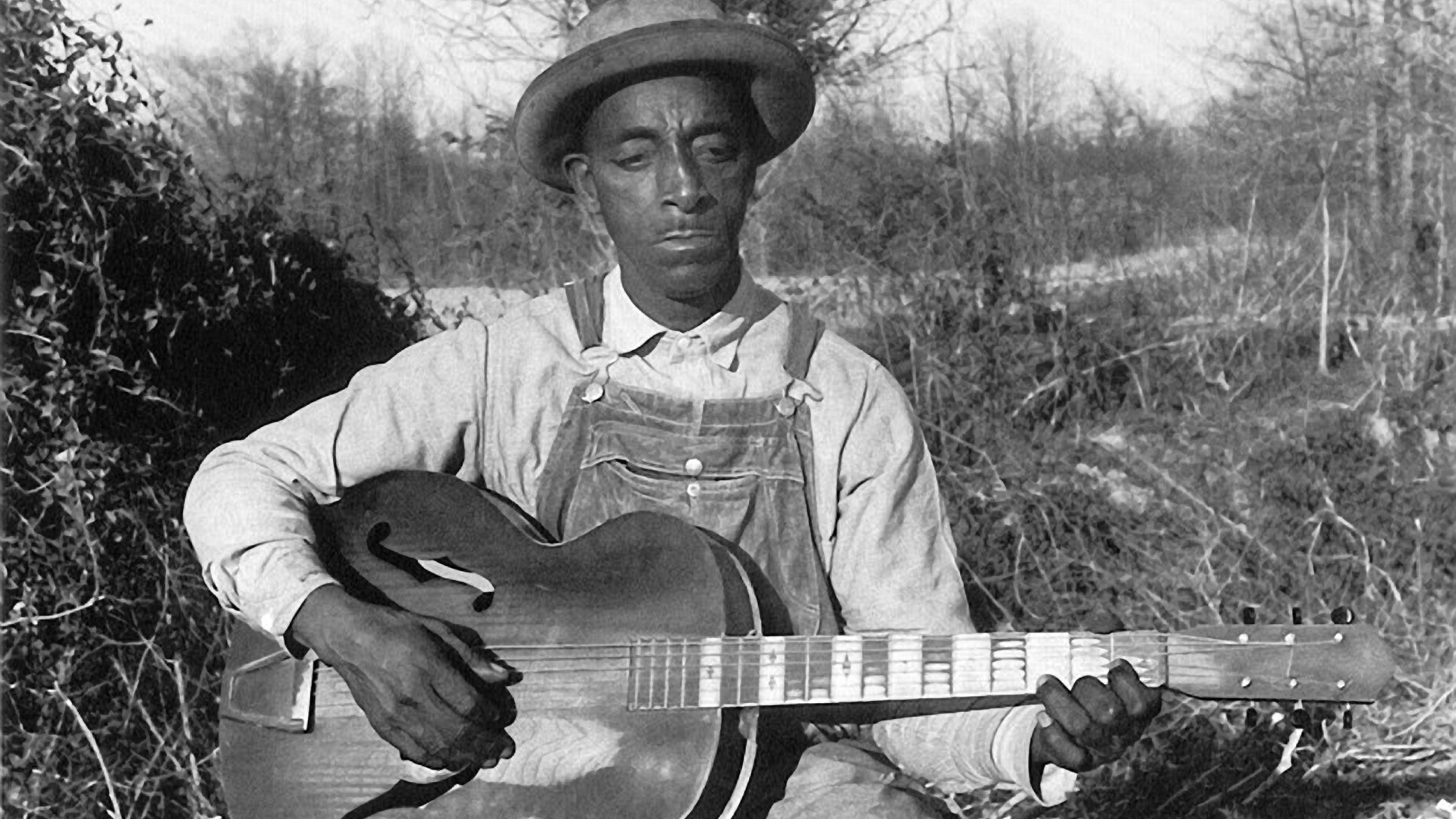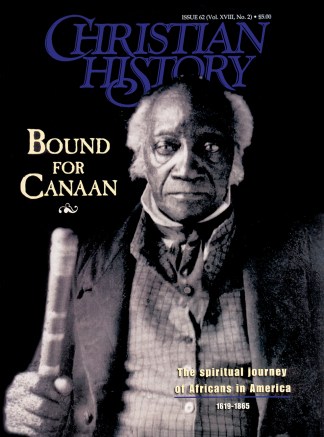Militant abolitionist Thomas W. Higginson was the commander of the First South Carolina Volunteers, the first Union regiment made up of freed slaves. In his camps, his soldiers would break out into song, which Higginson wrote down and published in the Atlantic Monthly.
"These quaint religious songs were to the men more than a source of relaxation, they were a stimulus to courage and a tie to heaven," he wrote.
"By these they could sing themselves, as had their fathers before them, out of the contemplation of their own low estate, into the sublime scenery of the Apocalypse. I remember that this minor-keyed pathos used to seem to me almost too sad to dwell upon, while slavery seemed destined to last for generations; but now that their patience has had its perfect work, history cannot afford to lose this portion of its record."
North to Canaan
Though Higginson and others noted that almost without exception, "all had a religious motive," spirituals were part of an elaborate system of secrecy. Sometimes these messages announced a secret meeting: "There's a great camp-meeting in the Promised Land."
Others may have signaled an impending escape: "Steal away to Jesus! I ain't got long to stay here!" Still others were used to mock their masters and to expose their religious hypocrisy: "Ev'rybody talkin' 'bout heav'n ain't goin' there."
"A keen observer might have detected in our repeated singing of 'O Canaan, sweet Canaan, I am bound for the land of Canaan,' something more than a hope of reaching heaven," wrote Frederick Douglass. "We meant to reach the North, and the North was our Canaan."
As one young boy, listening with Higginson to "De Lord Will Call Us Home," explained, "Day tink de Lord mean for say de Yankees."
But spirituals, though they had their hidden meaning, were primarily religious in nature, and were a key part of the worship experience of the slaves. On Sundays and other worship times, they became the basis of the ring shout:
"When the 'sperichil' is struck up, [all present] begin first walking and by-and-by shuffling round, one after the other, in a ring. … Sometimes they dance silently, sometimes as they shuffle they sing the chorus of the spiritual, and sometimes the song itself is also sung by the dancers. But more frequently a band … of singers … 'base' the others, singing the body of the song and clapping their hands together or on the knees."
But such songs weren't limited to the "praise-house"; they also served an important function in the work environment. Whether house slaves or field hands, they were expected to put in long hours of back-breaking work, with a minimal amount of food and rest.
In order to keep up with this pace, the slaves, often sang as they worked. As one ex-slave reflected, "We would pick cotton and sing, pick and sing all day."
The trouble I see
The spirituals provided a means of expressing the hope and despair that arose out of the living conditions under the brutal system of chattel slavery.
Nobody knows the trouble I see,
Nobody knows my sorrow;
Nobody knows the trouble I see,
Glory, hallelujah!
In the midst of such hardships, the spirituals emerged as a source of strength and support.
Through the spirituals, enslaved blacks affirmed that God is on the side of the oppressed. Inspired by God's actions on behalf of the children of Israel in Egypt, slaves firmly believed that God would deliver them from their bondage.
They anticipated, as Howard Thurman stated, "that inasmuch as God is no respecter of persons, what he did for one race he would surely do for another." One such spiritual began:
My army cross over,
My army cross over.
O, Pharaoh's army drownded!
My army cross over.
The slaves sang of Jesus as Lord, Conquering King, Reigning King, Suffering Savior, and Victorious Liberator. They believed in his supernatural power and in his ability to overcome oppressive systems. But while affirming his divinity, the slaves embraced Jesus as a constant companion, mediator, and friend. The suffering and death of Jesus held great meaning for oppressed slaves, as did his resurrection.
He have been wid us, Jesus
He still wid us, Jesus
He will be wid us, Jesus
Be wid us to the end.
In de morning when I rise,
Tell my Jesus huddy [howdy] oh;
I wash my hands in de morning glory,
Tell my Jesus huddy, oh.
Slaves also emphasized the Holy Spirit's presence and active involvement in their lives. Through this relationship, slaves affirmed they could feel the presence of the Spirit.
Jest befo' day, I feels 'im. Jest befo' day, I feels 'im.
My sister, I feels 'im. My sister, I feels 'im.
All night long I've been feelin' 'im.
Jest befo' day, I feels 'im. Jest befo' day, I feels 'im.
The sperit, I feels 'im. The sperit, I feels 'im!
Slaves referred to themselves as "all God's chillun'," "born of God," and "little children." This sense of their own humanity was validated by their belief that they were indeed children of God and created to be free. In light of this self-understanding, the slaves expressed a longing for freedom—not only from trials, tribulations, sin, and evil, but from slavery.
An' befo' I'd be a slave,
I'll be buried in my grave,
An' go home to my Lord an' be free.
Higginson's worry that "history [would] lose this portion of its record" with slaves' freedom never came to pass. Spirituals have significantly affected the rise of jazz, blues, gospel, pop, and country music, and influenced dance, drama, literature, and art.
Spirituals were resurrected in the Civil Rights movement. "Woke Up This Morning with My Mind on Jesus," for example, changed to "Woke Up This Morning with My Mind Stayed on Freedom," and "This Little Light of Mine" became "This Little Light of Freedom."
Though spirituals have changed over the years and no longer resemble the original form they embodied during slavery, they continue to evoke a sense of passion and hope whenever they are sung.
As W.E.B. DuBois wrote half a century after the Civil War, "Through all the sorrow of the sorrow songs there breathes a hope—a faith in the ultimate justice of things."
Yolanda Smith is visiting assistant professor of Christian religious education at Iliff School of Theology.
Copyright © 1999 by the author or Christianity Today/Christian History Magazine. Click here for reprint information on Christian History.











